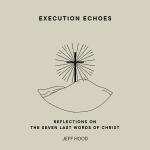Not so many people. Why? In part, apparently, because we are doing an increasingly poor job of explaining to the people who come through the doors what it is that we believe, why it makes a difference, and how it differs from what others believe.
A recent Pew Research Center report concluded:
Atheists and agnostics, Jews and Mormons are among the highest-scoring groups on a new survey of religious knowledge, outperforming evangelical Protestants, mainline Protestants and Catholics on questions about the core teachings, history and leading figures of major world religions. On average, Americans correctly answer 16 of the 32 religious knowledge questions on the survey by the Pew Research Center’s Forum on Religion & Public Life. Atheists and agnostics average 20.9 correct answers. Jews and Mormons do about as well, averaging 20.5 and 20.3 correct answers, respectively. Protestants as a whole average 16 correct answers; Catholics as a whole, 14.7. Atheists and agnostics, Jews and Mormons perform better than other groups on the survey even after controlling for differing levels of education. For a complete report, see:
http://pewforum.org/Other-Beliefs-and-Practices/U-S-Religious-Knowledge-Survey.aspx
Telling people why you believe what you believe and why it makes a difference does not need to be mean or abusive. Presumably we all believe a few things deeply — certainly mature people who are guided by any principles at all do. So why not believe something deeply if you are going to bother going to church?
The problem is, it’s a short distance from “bring your questions, we don’t believe in anything in particular” to “why bother going at all, if all I have are unanswerable questions and all you have is the tolerant ignorance to sit with me while I ask them?” Why would I need that kind of church? Companionship? There are better ways of forging intimacy. Tolerant space? We should all be working for that in a country where freedom of speech and belief is paramount, why add another institution to the complexity.
The creeds and beliefs that are the hallmark of churches is the means by which spirituality gets traction in people’s lives. They provide people with a common vocabulary and understanding of the God they follow, a shared approach to worship that lies at the heart of the spiritual pilgrimage on which they have embarked, and a means of communicating the faith they have embraced to others and across the generations.
But for that to be possible, people need to know what they believe. A church where people know that need not be a church marked by unthinking dogmatism, nor do the people who attend need to subscribe in a rigid and uniform way to the faith a church of that kind professes. And people with questions need not be banished. The characterization of churches as believing or open as the only two alternatives available is unreal at best and a mean-spirited rhetorical device meant to crush only some convictions.
But once institutionalized agnosticism is privileged by that kind of language, it isn’t long before people rightly conclude that there really is no reason for going to church at all.
The Reverend Dr. Frederick W. Schmidt, Jr. is Director of Spiritual Formation and Associate Professor of Christian Spirituality at Southern Methodist University, Perkins School of Theology in Dallas, Texas. An Episcopal priest, he also serves as the director of the Episcopal studies program. Visit his Experts page at Patheos.
















